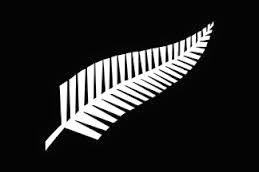It would be a great shame if
All Black great Kevin Skinner, who died on Monday, aged 86, was to be
remembered only for his 'policing' work during the 1956 series win over South
Africa.
The details are part of rugby
mythology and have often been greatly exaggerated.
 It must have caused some
frustration to the front row prop to be forever associated with the so-called
'sorting out' of the South African front row when he was recalled from
retirement for the third and fourth Tests of the series which inflicted the
first series loss on South Africa in the 20th century.
It must have caused some
frustration to the front row prop to be forever associated with the so-called
'sorting out' of the South African front row when he was recalled from
retirement for the third and fourth Tests of the series which inflicted the
first series loss on South Africa in the 20th century.
Before that Skinner had won
fame as part of the great Otago rugby team of 1947-50 that played under the
control of coach Vic Cavanagh. He toured South Africa in 1949 when New
Zealand's scrum proved so dysfunctional in comparison to the Springboks that they
called in South Africa liaison man with the team Bo Wintle and Danie Craven to
help them.
But, in spite of that,
Skinner made his mark on the South Africans in the three Tests in which he
played.
He played in the four-Test
series against the British and Irish Lions, including the third Test where due
to replacements not being allowed, New Zealand played with only six forwards as
a result of injuries during the second half, and still won.
While selected as All Blacks
captain against the 1952 Australians he did not get the job on the 1953-54 tour
to Britain and France. But he did play 27 of the 35 matches.
So to 1956. For all the talk
of how he used his punching power to sort out the Springbok scrum, Skinner maintained
that there were only two incidents in the third Test and the talk was so bad
afterwards about what allegedly went on that Skinner let it go for a while then
wrote a letter to the editor of the Auckland Star saying that they had had a
fair go with the subject and it was about time they looked at something else.
Skinner did tell author Bob
Howitt in his book New Zealand Rugby Greats that his whole approach was based
on not backing down.
"We had found in 1949
that the Boks would always try you on. If you showed them what you thought, and
didn't back away, they settled down and played rugby," he said to Howitt.
Winston McCarthy in his book
"Rugby in my Time" claimed to have the inside story on events in
Christchurch.
"Skinner had his first
hit in the second lineout in the Christchurch Test. Chris Koch stepped across
him [in the first lineout] which blocked him from coming through, and Skinner
warned him: 'Don't do it'.
"I think they're about
the only words he spoke to them the whole of the tour. The ball went into touch
and Koch did it again. So Skinner clocked him. Otherwise it would have just
kept on happening. He was cheating, so Skinner said, 'Don't cheat'. There was
no trouble in that front row."
McCarthy also related a
conversation he had at the Test dinner after the Christchurch match with
Springbok Jaapie Bekker.
"Jaapie said, 'Winston,
wasn't Kevin Skinner the heavyweight champion of New Zealand?' I said, 'Ja,
that's right. Back in 1947 I think it was, Jaapie. Heavyweight amateur
champion'.
"He said, 'Does he still
box in the right?' 'Oh no,' I said, 'Gee, Kev hasn't been in the ring since
1947'. Jaapie said, 'Well, tell him to take it on again. He's bloody
good.'"
But putting it all into
context was veteran New Zealand journalism J M Mackenzie who said what
Skinner's return had done was give New Zealand 'sorely needed equality in
hooking the ball from set scrums and definite supremacy in other aspects of
scrummaging'.
South African tour
correspondent Reg Sweet summed up the impact of Skinner's inclusion in the Test
side when he said: "Skinner was an instant success in the front row,
changing positions to oppose Bekker and Koch in their turn and stabilising the
New Zealand scrum in a manner not achieved before.
"Skinner was tough, very
tough. But he achieved the object of his recall to test rugby, and he walked
off Lancaster Park at the end with sleeves rolled up as he always had in South
Africa, looking as cool and unruffled as if he had been on a training
trot."
In choosing the 30 best international
players outside South Africa in his autobiography South African supremo Danie
Craven said both Skinner and Johnny Simpson would be his props.
"Here we have two strong
and heavy props who can take and give it, whose backs never show any signs of
the strain they have to endure. What is more, they not only can stand the
strain, but they have that little bit extra which makes the strain of their
opponents wellnigh unbearable."
Skinner's place in rugby
history is assured but it needs to be remembered for more than just the 1956
series. He was a key contributor to New Zealand finally ridding itself of the
aftermath of the 2-3-2 scrum and developing the technique and power that would
be the cornerstone of later generations of All Blacks packs.
No comments:
Post a Comment